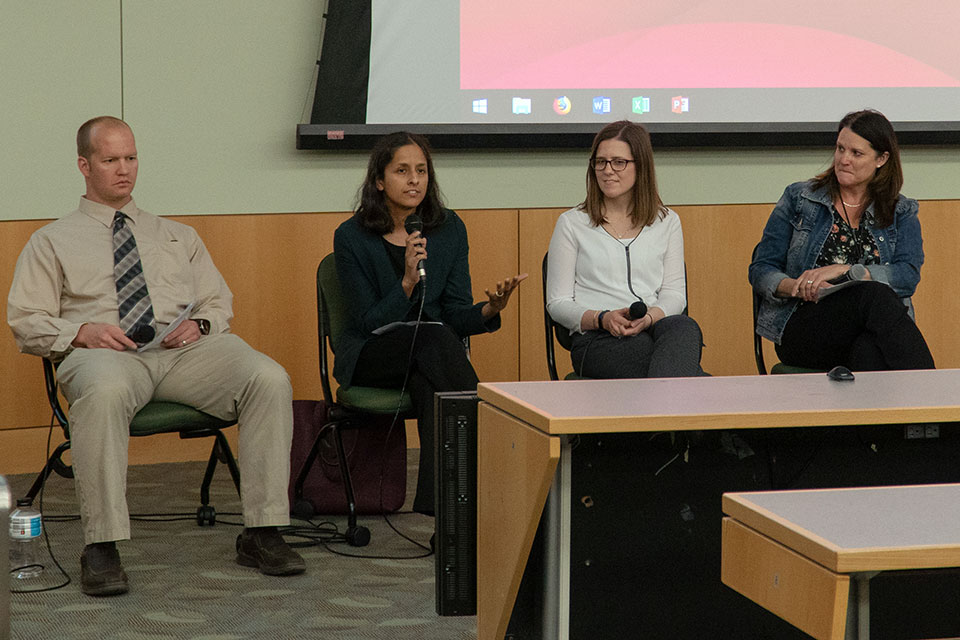Examining the Role of Pharmacists in Infectious Disease Prevention
May 13, 2019 Emily Heil, PharmD, BCPS-AQ ID, and Amanda Oglesby-Sherrouse, PhD
Interdisciplinary panel discussion highlights the re-emergence of measles in the U.S. and examines the role that pharmacists can play in curtailing the spread of vaccine-preventable diseases.
Every year, second-year pharmacy students enrolled in the Infectious Diseases Therapeutics (IDT) course at the School of Pharmacy learn about emerging and re-emerging infectious diseases. The class is always interesting, as we cover topics like bioterrorism and novel pathogens they have seen in the news, such as Ebola. The lecture even incorporates concepts that the students have learned throughout the entire academic year, including infectious disease pathogenesis and prevention, drug pharmacology, and therapeutic decision-making, while also introducing the importance of emergency preparedness plans and highlighting the role of the pharmacist in preventing and managing infectious disease outbreaks.
Addressing a Timely Topic
This year, the course tackled the topic of measles — an infectious disease that is especially relevant today, as the number of reported measles cases in the United States has hit a record high not seen since 1994. To discuss the role of pharmacists in the management of emerging infectious diseases and public health, we convened an interdisciplinary panel to wrap up the course for the semester. Panelists included:
- J. Kristie Johnson, PhD, director of the Clinical Microbiology Laboratory at the University of Maryland Medical Center
- David Harbourt, PhD, biological safety officer from the U.S. Army Medical Research Institutes of Infectious Diseases
- Ashley Martinelli, PharmD, BCCCP, emergency medicine clinical pharmacy specialist at the University of Maryland Medical Center
- Rekha Rapaka, MD, PhD, assistant professor with the Center for Vaccine Development and Global Health at the University of Maryland School of Medicine
All of the panelists joined our students for an interactive discussion. Students had the opportunity to submit questions ahead of the class, and also pose questions as they came up during the class. The panel discussed a wide variety of topics, including the public health threats of antibiotic resistance and reduced vaccination rates. The panelists also provided insights into biosafety procedures in clinical and research laboratories, and spoke about their experiences responding to outbreaks.
However, the theme that resonated most during the discussion was that all of these experts routinely interact with pharmacists in their jobs, and that pharmacists serve an important role in infection prevention through their role as an accessible provider of immunizations. Additionally, as the most accessible health care provider, pharmacists can be the first line of reliable information when infectious disease outbreaks occur for both patients as well as other health care providers.
We thank the panelists for their time and effort, and our second-year student pharmacists for their engagement in this important discussion.
